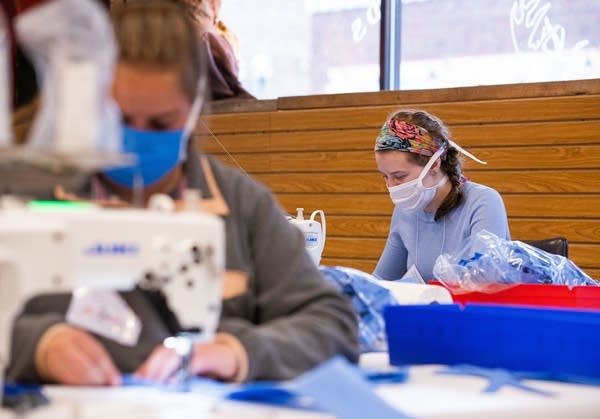MN Legislature nears agreement for COVID-19 aid to cities, counties

Grace Aspenson (right) works to create personal protective equipment for health care workers on April 28, 2020 at Frost River Trading Company in Duluth. Minnesota will distribute $841 million in federal money to smaller local governments under the federal CARES Act.
Derek Montgomery for MPR News file
Go Deeper.
Create an account or log in to save stories.
Like this?
Thanks for liking this story! We have added it to a list of your favorite stories.


